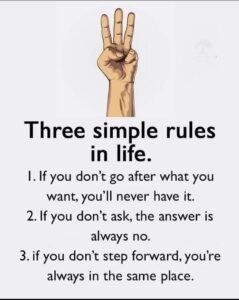To handle yourself, use your head; to handle others, use your heart. – Donald Laird
As social animals, we human beings have no choice but to live in society which implies that we need to interact with others, adjust to the demands of societal norms and yet maintain our own identity and independence. This poses a problem simply because the individuality that we pride on wants to break free of any shackles imposed on us while the social instinct in us forces us to toe the line that is determined by society and culture. It is reconciling this dichotomy that unconsciously poses a big dilemma for most of us. Our quote today, provides a glimpse of the option available to us to effectively maintain our personal identity while also ensuring we do justice to our social and neighborly role.
To begin with, we need to asses our own approach to our personal values, beliefs and actions. Being pragmatic would perhaps gives us the smoothest passage forward and that is possible when we don’t get overtly emotional and become a tinge more practical thinking out solutions, selecting logical options and making choices that suit our individuality. Eg. When we lose a loved one, grief would be obviously what overcomes us. Yet in that moment of grief too we need to get control of our emotions and if we always believed in organ donation should initiate steps for that. On the other hand if we are more traditional then there is no need to take on the guilt of pandering to the demands of those urging you to donate the organs for it is a very personal and private decision.
On the other hand when we play our role as social animals and discharge our obligations as neighbors, friends, relatives or as another human being, we need to listen to our heart and less to our wisdom which is often based on reasoning, logic and taken without any emotions attached to it. Eg. If we are firm believers in organ donation, we cannot impose our will on others who may not share our sentiments because of their personal reasons. We must respect the sentiments of the parties involved and try to empathize with their emotions rather than quarrel or wrestle with their flawed logic as we would be tempted to think. Take another scenario which is more prevalent the constant battle between parents who want their children to study and the children who are more keen to focus on their own interests be it games or computers or TV. Most parents use a hackneyed logic of equating studies with success in life which the children view as a bitter pill the parents are trying to push down their throat. On the other hand if the parents encouraged the children to pursue their own interests while setting some discipline to ensure that studies were also regularly done, it could be a win win situation since the children would perhaps see the parents as allies in their efforts to excel.
Criticism offers perhaps the best opportunity for us to put the above maxim to full use. When we are criticized we should suspend our emotional discomfort and attempt to see if there is any truth in the points raise by our critics. If the criticism is untrue simply ignore it. However if it is true then we need to be grateful that out attention has been drawn to something that impedes our effectiveness and we should work on overcoming those flaws. On the other hand when we have to be critical of others, then we must consider the emotional ramifications of our feedback on the other party and hence we must not be unduly harsh or hurtful. Instead we must handle their fragile emotions carefully and encourage them to overcome their flaws whilst also drawing attention to their strengths. This will help them maintain their dignity, reinforce confidence in themselves and at the same time give them the self belief that they can improve with effort and persistence.
Remember: The heart has its reasons of which reason knows nothing. Blaise Pascal
Try this:
- Can you recollect the last 5 criticisms that came your way. Do you recollect who told them? Were the criticisms justified? What efforts did you do to learn and improve from those criticisms?
- Write down 3 strengths and 1 criticism you have concerning the following people.
- Your favorite high school teacher
- Your best friend
- Your neighbor
- Your own family members (list them out and write for each person)
This post is courtesy www.actspot.com
You are also invited to visit our WEEKLY Inspirational and Motivational Blog www.poweract.blogspot.com





